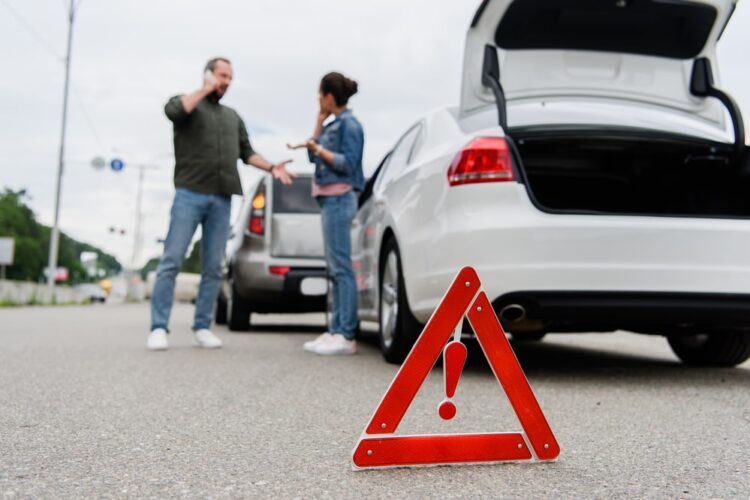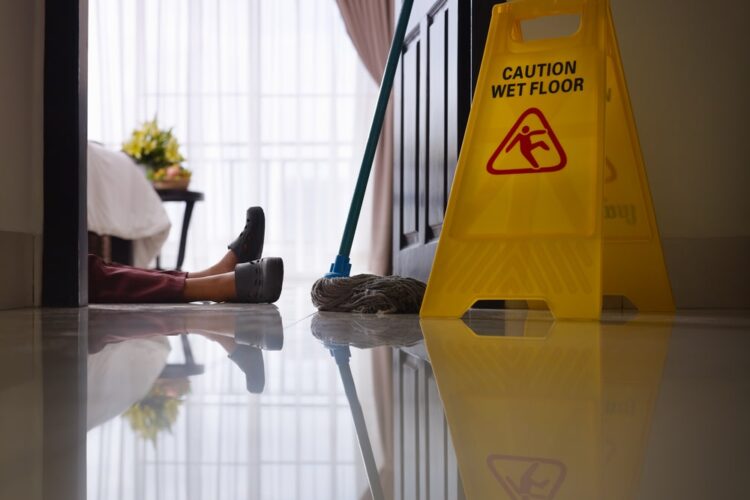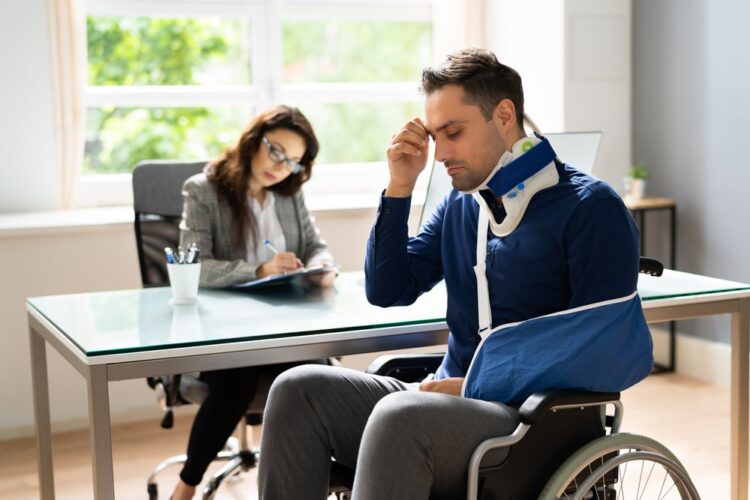June 23, 2024
The Importance Of Gathering Evidence After A Car Accident
When you’ve been injured in an accident, securing the compensation you deserve hinges on the strength of your case. At the heart of any successful personal injury claim lies robust, compelling evidence. Gathering evidence is not merely a step in the process; it is the foundation upon which your entire case is built. Here’s why it’s crucial to collect and preserve evidence in personal injury cases.
Establishing Liability
The first and most critical component of a personal injury case is proving who is at fault. Clear, indisputable evidence can demonstrate how the accident occurred and pinpoint the responsible party. For instance, in a car accident, photographs of the scene, witness testimonies, and police reports can provide a detailed account of what happened. Without this evidence, it becomes a matter of one person’s word against another’s, complicating efforts to establish liability.
Demonstrating The Extent Of Injuries
To obtain compensation, you must show that you sustained injuries and that these injuries were directly caused by the accident. As a car accident lawyer can attest, Medical records, photographs of injuries, and detailed notes from healthcare providers are essential pieces of evidence. They not only document the injuries but also illustrate their severity and impact on your life. Expert testimonies from medical professionals can further strengthen your claim by explaining the long-term effects of your injuries.
Documenting Financial Losses
A personal injury claim often includes compensation for various types of damages, such as medical bills, lost wages, and pain and suffering. Thorough documentation of these losses is necessary to ensure fair compensation. Save all medical bills, receipts for out-of-pocket expenses, and any correspondence from your employer about time off work. This financial documentation helps quantify the economic impact of your injury, making it difficult for the opposing party to dispute your claim.
Strengthening Negotiation Positions
When negotiating with insurance companies, having solid evidence can significantly strengthen your position. Insurers are more likely to offer a fair settlement if your claim is backed by comprehensive, well-documented evidence. They know that if the case goes to court, the evidence will be compelling to a judge or jury. Without strong evidence, you may face lowball settlement offers or outright denials of your claim.
Building A Persuasive Case In Court
If your case proceeds to trial, the evidence you’ve gathered will be the cornerstone of your legal arguments. Witness testimonies, expert opinions, and tangible proof like medical records and accident scene photos help construct a narrative that supports your claim. A well-documented case with robust evidence can persuade the jury, increasing the likelihood of a favorable verdict.
Conclusion
In personal injury cases, the importance of gathering evidence cannot be overstated. It is the bedrock of proving liability, demonstrating the extent of injuries, documenting financial losses, and building a persuasive case. Acting swiftly to collect and preserve evidence can significantly impact the outcome of your claim. Working with an experienced personal injury lawyer from Rasmussen & Miner ensures that all necessary evidence is gathered and effectively used to advocate for your rights. Their expertise in handling evidence provides you with the best chance of securing the compensation you deserve, allowing you to focus on recovery and rebuilding your life.
May 28, 2024
Your Rights After A Motorcycle Crash
Motorcycle accidents are often severe and can leave riders facing not only physical injuries but also significant legal and financial challenges. Knowing your rights after a motorcycle crash is crucial to ensuring that you receive the appropriate compensation and support during your recovery. Here’s a detailed guide on how to protect and assert your rights following a motorcycle accident.
Immediate Steps To Take After The Accident
The moments after a motorcycle crash can be chaotic and confusing. Your first priority should always be your health. Seek medical attention immediately, even if you believe your injuries are minor. Medical records will serve as important documentation of your injuries, which is vital for any future claims.
Once you have ensured your safety and received medical attention, try to document as much about the accident as possible. Take photographs of the scene, your motorcycle, any other vehicles involved, and your injuries.
Reporting The Accident
It is essential to report the accident to the police. A police report is an official record of the incident, which includes details about the parties involved, witness statements, and often an initial assessment of fault. This report will be important when dealing with insurance companies or during legal proceedings.
Know Your Insurance Rights
Motorcyclists often face unique challenges when dealing with insurance after an accident. Insurance policies can be complex, and the terms specific to motorcycle coverage may vary significantly from standard auto insurance. It’s important to review your insurance policy carefully and understand what coverages you have, including liability, collision, and medical payments.
When you report the accident to your insurance company, be mindful of the information you share. Stick to the facts and avoid admitting fault or making statements that could be interpreted against your interest.
Legal Representation Is Key
Consulting with your motorcycle accident lawyer is one of the most important steps you can take to protect your rights. Our friends at Strong Law Accident & Injury Attorneys can attest to the benefits of having experienced legal representation in these cases. A lawyer specialized in motorcycle accidents will understand the legal challenges specific to motorcycle claims, including common biases against riders and the severe nature of typical rider injuries.
Compensation For Your Losses
Understanding the types of compensation available to you is also critical. You may be entitled to various forms of compensation, including:
Medical expenses for immediate and ongoing treatments
Lost wages if you are unable to work due to your injuries
Pain and suffering for the physical and emotional distress caused by the accident
Property damage for repairs or replacement of your motorcycle
Your attorney will help you determine all applicable damages and work to secure a compensation package that covers your full range of losses.
Long-Term Considerations
After a motorcycle accident, your rights extend beyond immediate legal and insurance concerns. If you face long-term impairments, you may be entitled to disability benefits and compensation for future medical care. Rehabilitation, modifications to your home to accommodate disabilities, and ongoing care costs should also be considered in your claim.
The aftermath of a motorcycle crash can impact every aspect of your life. By understanding your rights and seeking appropriate legal counsel, you can navigate the aftermath of an accident more effectively. Protecting your rights helps ensure that you focus on what is most important—your recovery and well-being.
April 14, 2024
The Role Of A Car Accident Lawyer
When the unexpected occurs on the road, a car accident lawyer steps in as a beacon of support, offering guidance and legal expertise to those navigating the aftermath of a collision. These legal professionals specialize in advocating for individuals who have been injured or suffered damages as a result of a car accident, providing invaluable assistance during what can be a challenging and overwhelming time.
Central to their role is the pursuit of justice on behalf of their clients. Car accident lawyers work tirelessly to ensure that those responsible for causing harm are held accountable for their actions. They conduct thorough investigations into the circumstances surrounding the accident, gathering evidence, consulting with experts, and interviewing witnesses to build a strong case on behalf of their clients.
One of the primary objectives of a car accident lawyer is to secure compensation for their clients’ losses. This may include reimbursement for medical expenses, property damage, lost wages, and pain and suffering. By carefully assessing the extent of their clients’ damages, these lawyers can effectively negotiate with insurance companies or pursue litigation in court to seek fair and just compensation.
Communication is a cornerstone of their work. Car accident lawyers serve as trusted advisors to their clients, guiding them through the complexities of the legal process with clarity and compassion. They keep their clients informed at every stage of the proceedings, explaining their rights and options, and providing personalized counsel to help them make informed decisions about their case.
Car accident lawyers from Siegal & Richardson, LLP offer invaluable support to their clients during what can be a stressful and emotionally taxing time. They serve as advocates and allies, offering a source of comfort and reassurance as their clients navigate the physical, emotional, and financial consequences of their injuries.
Car accident lawyers understand the importance of timely action in pursuing legal remedies. They are well-versed in the statutes of limitations and other legal deadlines that may impact their clients’ ability to seek compensation. By acting swiftly and decisively, these lawyers ensure that their clients’ rights are protected and that they have the best possible chance of obtaining a favorable outcome.
Beyond individual cases, car accident lawyers also play a vital role in promoting public safety and accountability on the roads. By holding negligent drivers accountable for their actions, they send a powerful message that reckless behavior will not be tolerated. This serves as a deterrent, encouraging drivers to exercise caution and responsibility behind the wheel, thereby helping to prevent future accidents and injuries.
Car accident lawyers are dedicated advocates for those who have been injured or harmed as a result of a collision. Their commitment to justice, their expertise in the legal system, and their compassion for their clients make them invaluable allies during what can be a difficult and uncertain time. Whether negotiating with insurance companies or fighting for their clients’ rights in court, they stand firm in their pursuit of fair and just outcomes, ensuring that their clients can move forward with their lives with dignity and peace of mind.
April 5, 2024
Surveillance Footage For Motel Attack
In the aftermath of a harrowing experience like being attacked at a motel, seeking justice and holding the responsible parties accountable is paramount. Often, victims may feel overwhelmed and unsure of where to turn for support. However, one valuable tool that can significantly aid in the pursuit of justice is surveillance footage evidence.
The Value Of Surveillance Footage
Surveillance cameras are commonplace in motels and other establishments for security purposes. When an attack occurs, these cameras can serve as impartial witnesses, capturing crucial details of the incident that might otherwise go unnoticed or be disputed. From identifying the perpetrator to documenting the sequence of events, surveillance footage can provide invaluable evidence to support the victim’s case.
Confirming The Details Of The Attack
One of the primary benefits of surveillance footage is its ability to confirm the details of the attack. Eyewitness testimonies can be unreliable, and memories of traumatic events may be hazy or distorted. Surveillance footage, on the other hand, offers a clear and objective record of what transpired. As a lawyer, like a motel serious injury lawyer can tell you, it can confirm the identity of the attacker, the time and location of the incident, and the actions of both the victim and the perpetrator.
Establishing Liability
In cases where the motel may be held liable for the attack due to negligence or inadequate security measures, surveillance footage can be instrumental in establishing liability. By demonstrating that the motel failed to take reasonable steps to ensure guest safety, such as monitoring common areas or installing adequate lighting and security cameras, victims can strengthen their case and pursue compensation for their injuries.
Corroborating Witness Testimonies
Witness testimonies play a crucial role in corroborating the events of an attack. Surveillance footage can provide independent verification of witness accounts, lending credibility to their testimonies and strengthening the overall case. Additionally, in cases where there are discrepancies or conflicting testimonies, surveillance footage can serve as an impartial arbiter, clarifying the sequence of events and resolving any uncertainties.
Seeking Justice With Legal Support
An attorney can attest to the significance of surveillance video evidence in cases involving attacks at hotels and motels. With their expertise in personal injury law and dedication to advocating for victims’ rights, they can help victims navigate the legal process and pursue the compensation they deserve. From gathering evidence to negotiating with insurance companies or litigating in court, experienced attorneys can provide invaluable support every step of the way.
Attorneys like those at Deitch + Rogers can confirm that security video evidence can be a crucial asset in seeking justice and holding accountable those responsible for attacks at hotels and motels. By confirming the details of the attack, establishing liability, corroborating witness testimonies, and preserving evidence, video footage plays a vital role in helping victims pursue the compensation they need to rebuild their lives. With the guidance and support of skilled attorneys, victims can navigate the legal process with confidence and achieve the justice they deserve. Schedule an appointment with a lawyer you trust today.
March 29, 2024
How Personal Injury Lawyers Calculate Pain And Suffering Damages
When faced with the aftermath of an injury, the physical scars are often accompanied by a less visible, yet equally debilitating, form of damage – the emotional and psychological toll it takes on an individual. Legal practitioners, specifically those specializing in personal injury, recognize the significance of these non-physical harms. The calculation of these damages, often referred to in a broad sense as “pain and suffering,” is a crucial component of the compensation process. Clients need to dive into the intricacies of how legal experts approach the assessment of these damages, shedding light on a process that is as complex as it is vital.
Understanding Non-Economic Damages
At the heart of the compensation process lies the distinction between economic and non-economic damages. While economic damages are relatively straightforward, involving tangible costs such as medical bills and lost wages, non-economic damages are inherently more subjective. They encompass the intangible aspects of an injury’s impact, such as emotional distress, loss of enjoyment of life, and physical pain. The task of quantifying these impacts demands a nuanced approach, blending legal expertise with a deep understanding of human suffering.
Methods Employed In Calculation
The legal field has developed several methodologies to navigate the complexities of assessing non-economic damages. Two of the most commonly used approaches are the Multiplier Method and the Per Diem Method. The Multiplier Method involves multiplying the total economic damages by a certain number, which varies based on the severity and permanency of the injuries. Conversely, the Per Diem Method assigns a daily rate to the victim’s pain and suffering, multiplying this rate by the number of days the victim is expected to endure these conditions.
Each method has its advantages and is selected based on the specifics of the case, the nature of the injuries, and the impact on the individual’s life. Legal professionals like those at The Turnbull Firm weigh these factors carefully, aiming to ensure that the compensation reflects the true extent of the victim’s pain and suffering.
The Role Of Evidence And Documentation
The foundation of any successful claim for non-economic damages is robust evidence and thorough documentation. Legal experts advise clients to maintain detailed records of their injuries, treatment, and how these have impacted their daily lives. Diaries, medical records, and testimonials from family, friends, and mental health professionals all serve as critical pieces of the puzzle. These documents provide a vivid depiction of the victim’s ordeal, lending weight to the claim and facilitating the calculation of damages.
Jury Considerations And Settlement Negotiations
When a case goes to trial, the determination of non-economic damages ultimately rests with the jury. Jurors are tasked with translating the qualitative aspects of the victim’s suffering into a monetary figure, guided by the evidence presented and the arguments made by the legal representatives. However, the majority of personal injury cases are resolved through settlements. In these negotiations, the calculation of pain and suffering damages plays a key role in reaching an agreement that both parties can accept. The skill and experience of a personal injury lawyer are paramount in these discussions, ensuring that their client’s pain and suffering are adequately compensated.
The calculation of pain and suffering damages is a process that requires a delicate balance of legal acumen, empathy, and strategic negotiation. Personal injury lawyers serve as vital advocates for their clients, navigating the complexities of the law to secure compensation that reflects the true extent of their client’s injuries. Through a combination of methodical calculation, comprehensive evidence collection, and persuasive negotiation, these legal professionals work tirelessly to bring a measure of justice to those who have suffered. In doing so, they underscore the importance of acknowledging and compensating not just the physical but also the profound emotional and psychological impacts of personal injury.
March 19, 2024
Avoiding Injuries While Engaging in Extreme Activities
 When participating in an activity with a business that might end in injury, most companies require participants to sign waivers. However, did you know that even if you sign a waiver, companies can still be held liable for your injuries if negligence was involved? More and more fun attractions are opening up across the nation that require waivers from cable wakeboarding to indoor axe throwing. While these can be extremely fun, it is important to keep safety in mind. They have provided us with some tips on how to enjoy these extreme activities while staying safe:
When participating in an activity with a business that might end in injury, most companies require participants to sign waivers. However, did you know that even if you sign a waiver, companies can still be held liable for your injuries if negligence was involved? More and more fun attractions are opening up across the nation that require waivers from cable wakeboarding to indoor axe throwing. While these can be extremely fun, it is important to keep safety in mind. They have provided us with some tips on how to enjoy these extreme activities while staying safe:
Check Equipment
Do not just take a company’s word for it that their equipment is safe. Take the time to ensure that everything looks up to par. If you have to wear a harness, double check that it does not seem worn or frayed. Additionally, if you feel you have not put the harness on correctly, ask one of the workers to check it just to be extra sure. Verify that the facilities are clean and clear of obstructions. Sometimes companies can be careless when rushing around trying to help customers, or employees can even be tired and forget to check something. It never hurts to double check it for yourself.
Follow the Rules
Companies put rules in place not just out of concern for safety, but often because someone has made the rule a necessity. For example, if you go to an indoor axe throwing business, one rule they will tell you is to not try to catch the axe if it bounces off the target. There were actually a few cases of people doing this and becoming seriously injured. The rules are there for a reason! If there is not a rule in place and something happens where you still get injured, that is when you should contact a lawyer for help.
Read the Waiver
Do not just sign safety waivers. It is best practice to look through them first. Of course some of the language in them may be hard to understand, but skimming through to make sure you understand the main point is what is important. If something is concerning, bring it up with the company and ask for clarification. If there is anything that is outright alarming, do not sign the waiver. Chances are you can find another company that does the same thing, but safer.
Be Aware
Most extreme activities such as indoor rock climbing require you to be cognizant of your surroundings. You do not want to step on someone or fall and take another person with you. Always be aware of what is happening around you. If there is a person not following the rules and behaving in a dangerous manner, alert the business immediately. They will ensure that person is made to follow the rules. If the business does nothing, for your safety it would be better to walk away. Even though you were not injured, you can still contact a lawyer about that situation as the company knowingly endangered your life and health by not enforcing important rules.
Hopefully you are able to enjoy extreme activities safely, but if an accident occurs due to the negligence of the company behind them, contact an injury lawyer near you for help immediately.
March 16, 2024
Understanding Your Steps After An Automobile Collision
Navigating the aftermath of a vehicle collision can be a complex and challenging journey. It’s a moment filled with confusion, questions, and, quite often, a rush of emotions. Knowing the proper steps to take can significantly impact the resolution of your situation, potentially saving time, resources, and ensuring your rights are fully protected. Always make sure to reach out to a skilled car accident lawyer following a collision. This guide from our friends at Mitchell & Danoff Law Firm, Inc aims to offer clarity and direction during such stressful times.
Immediate Actions Post-Collision
First and foremost, prioritize safety. If you are able to, move to a safe location away from traffic to prevent further accidents. Check yourself and others for injuries. Calling emergency services is crucial, even if the injuries seem minor. The adrenaline rush can mask pain, and some injuries may not be immediately apparent.
Documenting the scene comes next. Use your smartphone to take pictures of the vehicles, any visible injuries, and the surrounding area. These images can be invaluable evidence for insurance claims and legal purposes.
Exchange information with the other driver, including names, contact details, and insurance information. However, it’s essential to speak cautiously. Avoid admitting fault or making statements that could be used against you in future proceedings. The determination of fault should be left to the professionals after they have reviewed all evidence. This could be a very crucial part of how you can help your car accident lawyer with your case.
Seeking Medical Attention
Even if you feel fine, a medical check-up is advisable. Some injuries, like whiplash or internal bruising, don’t show immediate symptoms but can have long-term consequences. A healthcare professional can provide a thorough examination and document your condition, which is vital for any insurance or legal claims.
Navigating Insurance And Legal Waters
Notifying your insurance company about the incident is a necessary step, but tread carefully. Insurance companies often aim to minimize their payout, so it’s advisable to consult with a legal professional before accepting any settlement offers or signing documents. They can offer guidance on how to communicate with your insurer and ensure your rights are protected.
Understanding Your Legal Options
It’s here that the value of expert legal advice becomes most apparent. A skilled attorney can navigate the complexities of insurance claims and personal injury law, advocating on your behalf to secure fair compensation for damages, medical expenses, and any lost wages due to the accident.
The Importance Of Acting Promptly
Remember, time is of the essence. There are statutes of limitations that dictate how long after an accident you can initiate legal proceedings. Consulting with a legal professional early can help ensure you don’t miss critical deadlines and maximize your claim’s potential.
Your Next Steps
If you’ve recently experienced a vehicle collision, it’s normal to feel overwhelmed. However, taking the right steps can alleviate some of the stress and confusion. Ensuring your safety, documenting the incident, seeking medical attention, and consulting with a legal professional are all crucial steps in navigating the aftermath.
When you’re ready to discuss your situation, consider reaching out to a great car accident attorney near you for a consultation. An experienced attorney can provide the guidance and support you need to navigate the legal landscape, advocating for your rights and working towards the resolution you deserve. Remember, you don’t have to navigate this journey alone.
March 15, 2024
The Legal Aftermath Of A Brain Injury
The aftermath of sustaining a brain injury can be a period filled with uncertainty and stress. As individuals and their families grapple with the medical, emotional, and financial ramifications, the question of legal action often arises. Whether to settle a claim out of court or pursue litigation. Clients must dive into the nuanced considerations that guide this decision-making process, drawing on the experience of legal professionals.
Understanding The Legal Landscape
Before diving into the specifics, it’s crucial to have a grasp of the legal landscape surrounding personal injury cases, especially those involving brain injuries. These cases are particularly intricate due to the profound and sometimes latent effects of the injury on an individual’s life. It’s important to acknowledge that each case is unique, and the advice of a seasoned lawyer is invaluable in navigating the path forward.
The Case For Settling
Settling a case out of court often presents a compelling option for several reasons. Firstly, settlements can provide a quicker resolution to a potentially long-drawn legal battle. This expedited process can be a relief for those looking to avoid the emotional and financial toll of a court case. Additionally, settling guarantees a certain outcome. When the uncertainty of a trial is daunting, securing a definite compensation amount can provide peace of mind and stability for the future.
However, it’s essential to proceed with caution. Accepting a settlement without thorough consideration and professional advice can result in compensation that falls short of covering long-term needs. This is where the expertise of a lawyer becomes indispensable, ensuring that any settlement is fair and reflective of the injury’s true impact.
When Litigation Is The Right Path
While the thought of going to court can be intimidating, there are circumstances where litigation is the preferred route. This is particularly true in cases where the responsible party disputes their liability or the settlement offered does not adequately address the victim’s needs. Going to trial can potentially lead to more significant compensation, especially if the evidence strongly supports the victim’s claim.
Litigation also serves a broader purpose, holding the responsible party publicly accountable. This can be an important consideration for those who wish to ensure that the same harm does not occur to others. It’s a path that demands resilience and patience, but with the right legal support, it can be a powerful avenue for justice.
Choosing The Right Legal Partner
The decision between settling and suing hinges significantly on the legal counsel you choose. A knowledgeable and experienced brain injury lawyer will offer invaluable insights into the merits of your case and the potential outcomes of different courses of action. Look for a professional like those at Woron and Dhillon, LLC who not only has a track record of success in similar cases but also demonstrates a deep understanding of the personal impacts of brain injuries.
Your lawyer should be someone you trust implicitly, who communicates clearly and aligns with your values and goals. This partnership is crucial in navigating the complexities of your case with confidence and making informed decisions that best serve your long-term interests.
The journey following a brain injury is undeniably challenging. When it comes to the question of whether to settle or sue, there is no one-size-fits-all answer. Each decision carries its own set of implications, risks, and benefits. By seeking the counsel of a seasoned brain injury lawyer, you can navigate this complex landscape with the knowledge and support needed to make the best decision for your circumstances. Remember, your choice not only affects your legal outcome but also your path to healing and moving forward with your life.
March 3, 2024
Understanding The Role Of A Motorcycle Accident Lawyer
Motorcycles offer an unparalleled sense of freedom on the open road. However, the thrill of riding comes with significant risks. Motorcycle accidents are disproportionately more likely to result in severe injury or death compared to car accidents. The lack of physical protection, the smaller size, and the greater instability of motorcycles compared to four-wheeled vehicles contribute to this increased risk. In the unfortunate event of an accident, a motorcycle accident lawyer can be an invaluable ally for victims and their families.
Motorcycle accidents can be devastating, both physically and emotionally. Injuries can range from road rash and broken bones to more severe outcomes like traumatic brain injuries or spinal cord damage. The aftermath of such accidents often involves not only physical recovery but also navigating the complex world of insurance claims and legal proceedings. This is where the expertise of a motorcycle accident lawyer becomes crucial.
A motorcycle accident lawyer specializes in representing accident victims in legal claims against negligent drivers, insurance companies, and other parties. Their role involves several key responsibilities that are critical to securing fair compensation for their clients. First and foremost, they provide legal advice tailored to the specific circumstances of the motorcycle accident. Understanding the nuances of the law, including state-specific regulations and statutes of limitations, is essential for building a strong case.
Investigation and evidence collection are also central to the work of a motorcycle accident lawyer. This often involves gathering police reports, medical records, witness statements, and any available video or photographic evidence from the scene. The objective is to construct a compelling narrative that clearly demonstrates the other party’s negligence or wrongdoing.
Negotiation with insurance companies is another critical function of a motorcycle accident lawyer. Insurance providers are often focused on minimizing payouts, which can leave accident victims with insufficient compensation to cover medical bills, lost wages, and other damages. A skilled lawyer will advocate on behalf of their client, leveraging the evidence gathered to ensure a fair settlement is reached. If negotiations fail, the lawyer is prepared to take the case to court, presenting the evidence and arguing the case before a judge or jury.
The emotional and financial toll of a motorcycle accident can be overwhelming. Medical expenses can quickly accumulate, and the recovery process may prevent victims from returning to work, leading to lost income. A motorcycle accident lawyer understands these challenges and works diligently to secure compensation that addresses not only current losses but also future needs. This may include ongoing medical treatment, rehabilitation costs, and compensation for pain and suffering.
Choosing the right motorcycle accident lawyer is a crucial decision. Look for someone with experience in motorcycle accident cases, a track record of successful settlements or verdicts, and a clear understanding of the challenges unique to motorcycle accident claims. A good lawyer will offer compassionate support while aggressively pursuing justice on behalf of their client.
In conclusion, the aftermath of a motorcycle accident can be a daunting journey. However, with the support of a dedicated motorcycle accident lawyer, like the lawyers at Garrett, Walker, Aycoth & Olson, Attorneys at Law, victims can navigate the legal landscape with confidence. These professionals play a vital role in ensuring that justice is served and that accident victims receive the compensation they deserve, allowing them to focus on recovery and moving forward with their lives.
February 27, 2024
How A Truck Accident Lawyer Can Help
In the realm of vehicular mishaps, individuals involved in truck accidents often find themselves in need of specialized legal assistance, turning to the expertise of a professional versed in the complexities of truck accident law – the truck accident lawyer. These legal professionals play a pivotal role in navigating the intricacies of truck accident cases, offering essential guidance and support to individuals seeking reparation for damages incurred in these often severe incidents.
A truck accident lawyer shoulders the responsibility of conducting a comprehensive analysis of the circumstances surrounding the accident. This involves delving into the details of the collision, scrutinizing evidence, witness statements, and relevant documents to establish a clear understanding of the factors contributing to the incident. Through this meticulous examination, the lawyer can identify potential liability, negligence, or regulatory violations on the part of the trucking company or driver.
One key aspect of a truck accident lawyer’s role is to navigate the complex web of federal and state regulations governing the trucking industry. These regulations encompass driver qualifications, vehicle maintenance standards, and hours-of-service requirements, among others. A proficient truck accident lawyer is well-versed in these regulations, allowing them to pinpoint any violations that may have contributed to or caused the accident. This understanding is crucial in developing a strong legal strategy to hold responsible parties accountable for their actions.
A truck accident lawyer from Katz Law acts as a liaison between the injured party and insurance companies, leveraging their legal expertise to negotiate fair and equitable settlements. Negotiating with insurance providers demands a delicate balance of legal acumen and negotiation skills to ensure that the injured party receives adequate compensation for medical expenses, property damage, lost wages, and pain and suffering.
In cases where settlement negotiations fall short, a truck accident lawyer provides essential representation in court. They prepare and file necessary legal documents, represent the injured party during court proceedings, and present compelling arguments to support the client’s claims. The lawyer’s role is to advocate for their client’s rights and seek just compensation for the damages incurred.
Beyond the legal realm, a truck accident lawyer often collaborates with accident reconstruction experts, medical professionals, and other specialists to build a robust case. This interdisciplinary approach enhances the lawyer’s ability to present a comprehensive and compelling narrative that establishes liability and quantifies the extent of the damages suffered by the injured party.
A truck accident lawyer emerges as a crucial ally for individuals seeking legal recourse and fair compensation in the aftermath of a truck accident. Through their deep understanding of trucking regulations, meticulous investigation, negotiation skills, and courtroom advocacy, these legal professionals play a pivotal role in navigating the complexities of truck accident cases. In times of distress, the expertise and support of a truck accident lawyer can be instrumental in securing just compensation and helping individuals rebuild their lives in the wake of a potentially life-altering incident.









